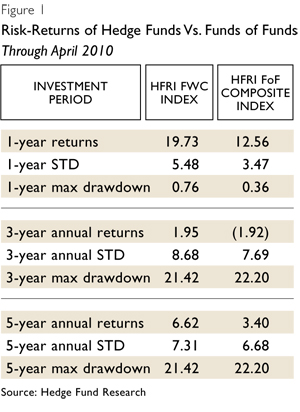
Transparency
Many issues affecting fund of funds performance were compounded by insufficient transparency. This prevented many managers from truly knowing their composite risk by sector, asset class, currency, leverage and duration, and how the addition and deletion of individual funds were affecting these risks.
Ron Papanek, head of business strategy at RiskMetrics, a leading hedge fund aggregator of portfolio-level data, says there is a clear need for an improved understanding of investment concentration and the risks associated with FoF portfolios. At the same time, he says, hedge fund managers are increasingly aware of the need to make their individual portfolios transparent to investors.
According to Nicholas Verwilghen, the partner overseeing risk management at the Switzerland-based fund of funds EIM-a $8.5 billion global manager that customizes multi-fund programs for over 100 institutional investors-the percent of his underlying funds that have agreed to provide this information has jumped over the past year from 50% to 100%. They do so through an independent third party that verifies and aggregates the data.
On the operational side, the 2008 meltdown also emphasized the need for independent and full-service, third-party administrators to ensure accurate pricing and trade information, and independent custodians to ensure the legitimacy of assets.
"These improvements are significantly improving the assessment of portfolio exposure and concentration, counterparty, liquidity, credit and manager balance sheet risks," Verwilghen says.
Kenneth Phillips, founder and CEO of Santa Monica, Calif.-based HedgeMark, which analyzes and integrates hedge fund portfolios and risk management systems, is less sanguine about industry prospects. He believes FoF managers rely too much on modern portfolio theory.
He sees two problems in doing this: MPT requires the use of a reliable and relevant benchmark, which Phillips believes does not exist for FoFs because hedge funds are a mix of various strategies and leverage that cannot be meaningfully averaged together. Also, funds of funds seek greater diversity across individual funds and investment platforms that don't always provide sufficient transparency, preventing thorough portfolio analysis.
Phillips believes funds of hedge funds should use managed accounts as underlying funds to ensure full transparency, asset control and manager accountability. This enables a FoF manager to apply a comprehensive risk management overlay to protect the entire portfolio.
"This approach is still far from the norm, but it should be to ensure investment mandates are met and fiduciary standards sustained," Phillips says.








